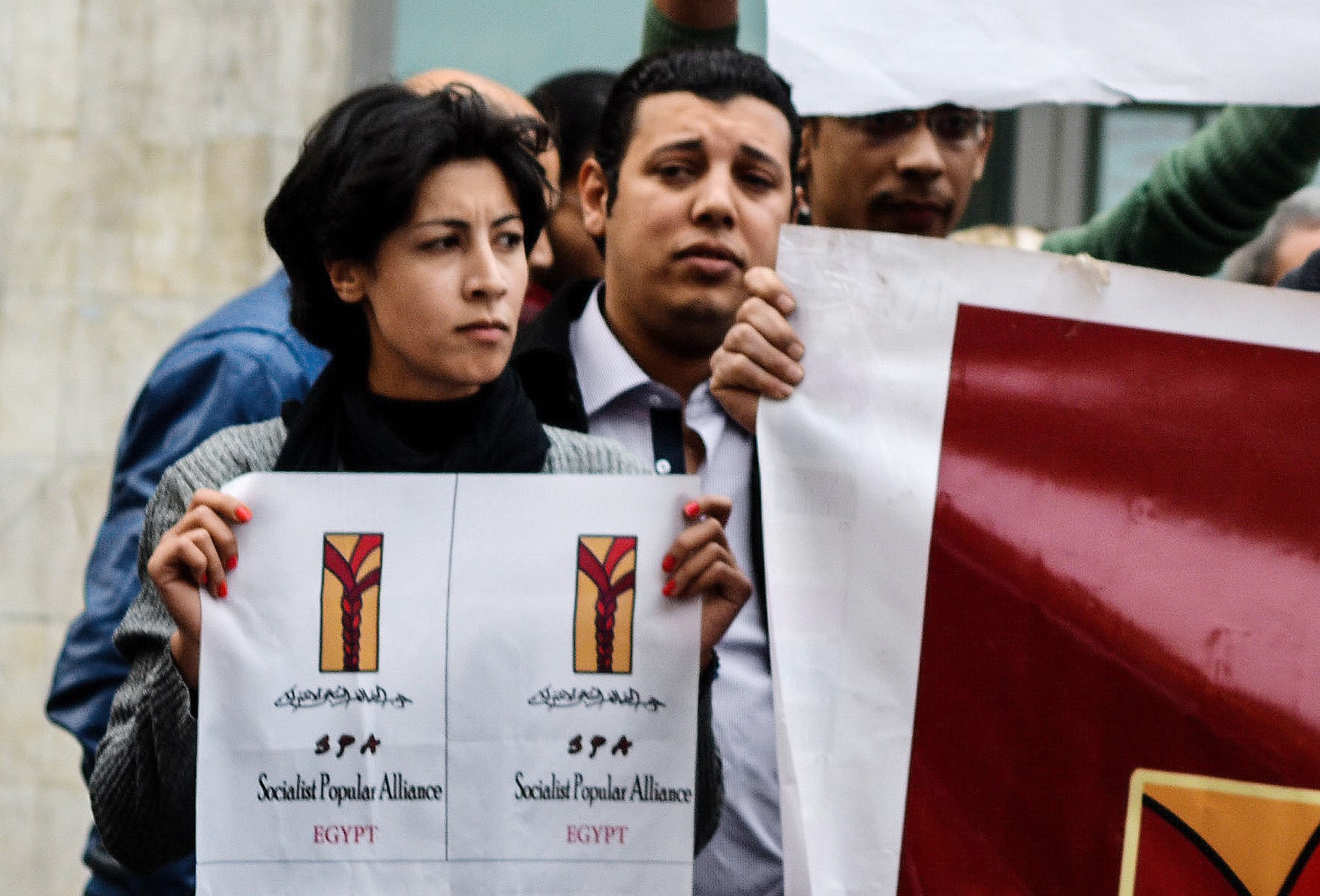“The sentence against al-Sabbagh’s killer would serve justice but past convictions of police have been reversed on appeal, meaning there has been zero accountability for killing protesters,” said Sarah Leah Whitson, Middle East and North Africa director.
This statement was originally published on hrw.org on 12 June 2015.
An Egyptian criminal court on June 11, 2015, sentenced a police officer to 15 years in prison for killing the activist Shaimaa al-Sabbagh during a peaceful march in downtown Cairo. However, none of the security forces responsible for killing more than 1,000 protesters since July 2013 are in prison.
Prosecutors had charged the officer, First Lieutenant Yasin Salah al-Din, 24, of the Central Security Forces, with “beating until death,” a lesser charge than murder. Mohamed Abd al-Aziz, a member of the legal team representing witnesses to the killing, who have themselves been charged, told Human Rights Watch that the 15-year prison sentence was the maximum allowed for the lesser charge. Al-Din can appeal to the Court of Cassation, Egypt’s highest appeals court.
“The sentence against al-Sabbagh’s killer would serve justice but past convictions of police have been reversed on appeal, meaning there has been zero accountability for killing protesters,” said Sarah Leah Whitson, Middle East and North Africa director. “Nor has there been any accountability for those in charge of Egypt’s security forces, who are ultimately responsible for the widespread and systematic killings of protesters in Egypt over the past two years.”
Abd al-Aziz and other human rights lawyers had asked prosecutors to charge two other members of the security forces – a general and a conscript – for aiding al-Din in the killing, but prosecutors declined.
Al-Sabbagh, 31, and about two dozen other members of the Socialist Popular Alliance Party had gathered in downtown Cairo’s Talaat Harb Square on January 24, a day before the fourth anniversary of the 2011 uprising, to remember those who died during the uprising. Police stationed in the square quickly dispersed the group using teargas and birdshot.
Videos and photos analyzed by Human Rights Watch clearly showed a member of the Central Security Forces, commanded by a general, point and fire a shotgun in the direction of al-Sabbagh and others, who were walking away. Al-Sabbagh can be seen falling to the ground. The Justice Ministry’s Forensic Medical Authority concluded that she died of lacerations to her heart and lungs caused by birdshot pellets.
Prosecutors have charged 16 people who witnessed the killing, including al-Sabbagh’s fellow party members, with breaking a November 2013 law that effectively outlaws protests. A court acquitted the witnesses, but prosecutors appealed the acquittal in May 2015.
“Prosecuting a low-level police officer is important, but it does nothing to mask the government’s relentless persecution of peaceful critics, including those who are witnesses to the government’s crimes,” Whitson said.



